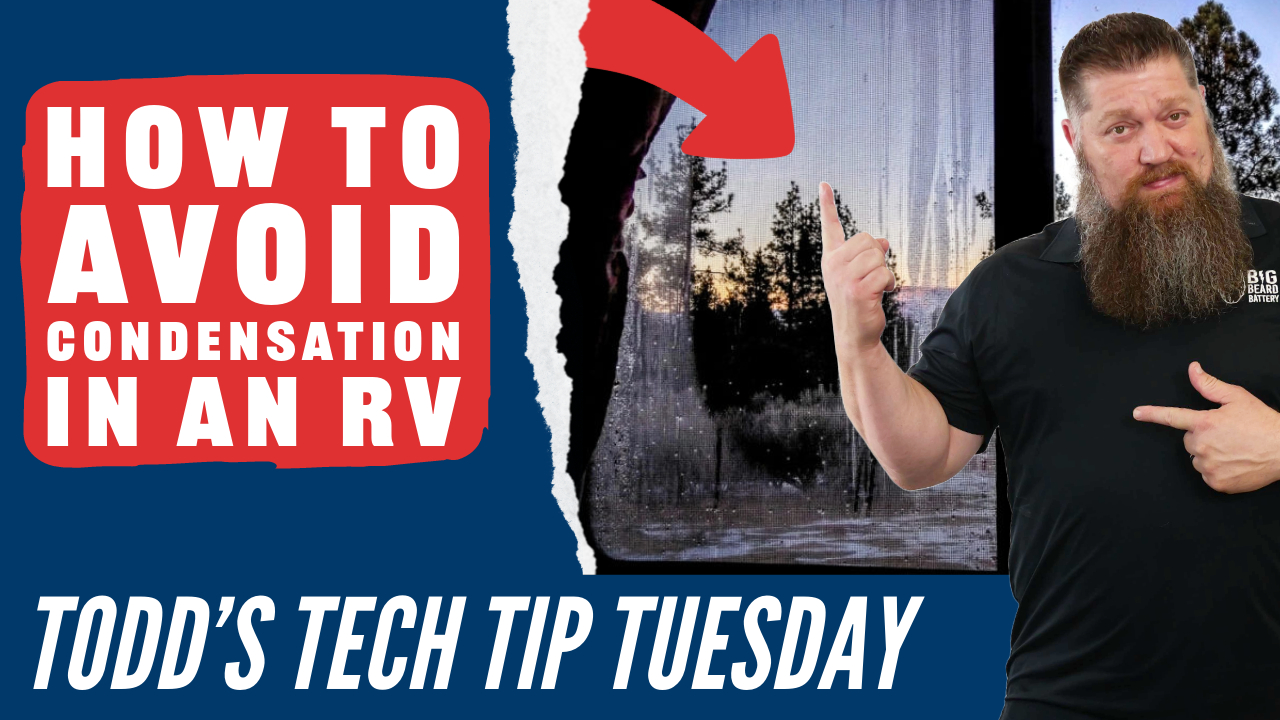Get your RV Technician Certification in as little as 5 weeks!

RV enthusiasts know that the adventure and freedom of living on the road come with their own set of challenges. Among these, dealing with humidity inside the RV stands out as a significant issue. Excessive moisture can not only cause discomfort but also lead to damage over time. As we explore this topic, we’ll delve into effective ways to manage humidity in your RV.
The Problem of Humidity in RVs
Consider the experience of an RV owner in West Texas with a 42-foot fifth wheel, the 2021 Forest Saber. He noted excessive wetness on the windows and inside the cabinets of his vehicle. This isn’t an isolated case; RV owners, regardless of the size of their vehicles, often encounter similar humidity challenges.
Why Does Humidity Occur?
A key contributor to indoor humidity in RVs is the use of the furnace. Heating your RV releases moisture into the air. This moist air, upon contacting colder surfaces like windows, leads to condensation and results in water droplets forming.
The Solution: Dehumidifiers
An effective way to combat this issue is by using a dehumidifier. These devices work by reducing the moisture level in the air, thereby preventing condensation. Many RV owners have found that using a dehumidifier significantly alleviates the problem of indoor humidity.
Other Methods to Reduce Humidity
In addition to dehumidifiers, there are other strategies to control moisture:
- DampRid: This product is designed to absorb moisture from the air, functioning well even without forced air circulation.
- Heat Pump or Air Conditioner: Surprisingly, these can also help reduce indoor humidity. While using them in winter might seem odd, they can effectively pull moisture from the air.
Using Dehumidifiers in Summer
Dehumidifiers are not just beneficial in winter. During summer, they can improve the efficiency of air conditioners by removing excess moisture, leading to a more comfortable and cooler environment inside the RV.
Technical Tip
For RV owners, it’s important to remember that dehumidifiers and other appliances like air conditioners should be on separate circuits, particularly in 30 amp RVs. This precaution helps to avoid overloading the electrical system.
Conclusion
Managing humidity is crucial for the comfort and longevity of your RV. By employing dehumidifiers and other moisture-control techniques, you can significantly mitigate moisture-related problems. With these tips, you can ensure a more comfortable and enjoyable journey in your home on wheels.
Get Registered Today!
Talk to a student advisor to learn more!
